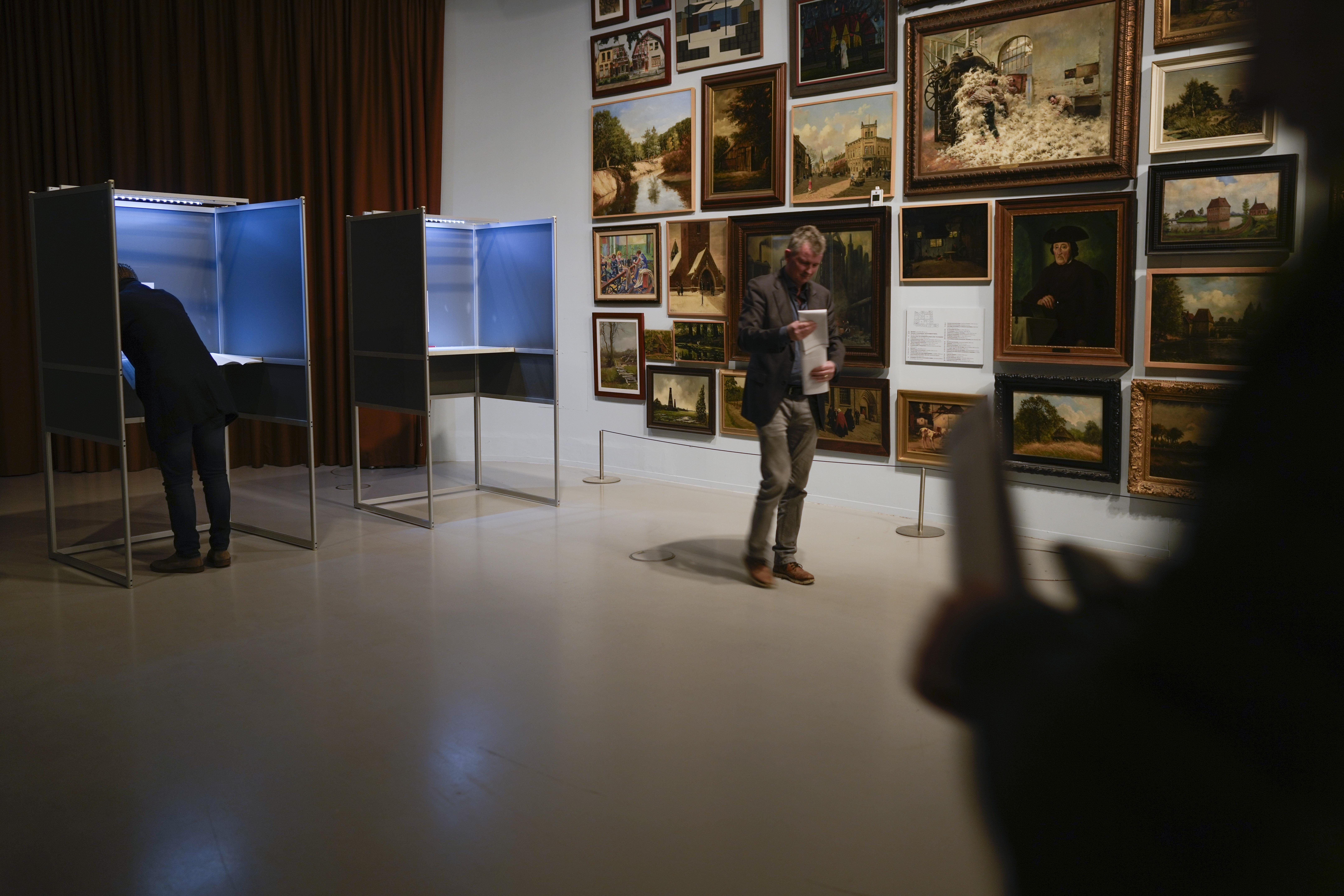 Voters cast their ballots at the Museumfabriek, or Museum Factory, in Enschede, Netherlands, Nov 22, 2023. (PHOTO / AP)
Voters cast their ballots at the Museumfabriek, or Museum Factory, in Enschede, Netherlands, Nov 22, 2023. (PHOTO / AP)
AMSTERDAM -- Dutch voters cast their ballots on Wednesday in a nail-biting election in which opinion polls show at least three parties - including the far-right - could hope for the top spot, with no clear leader emerging.
Only one thing is certain: the Netherlands will get its first new prime minister in over a decade after Mark Rutte resigned in July as his fourth coalition government collapsed, ending a 13-year tenure.
Restricting immigration - the issue that triggered the collapse of Rutte's last cabinet in July - has been a key issue in the poll
Restricting immigration - the issue that triggered the collapse of Rutte's last cabinet in July - has been a key issue in the poll.
At stake is also whether voters in one of Europe's most prosperous countries are willing to continue funding climate policies, such as an expensive rollout of offshore wind farms amid a cost-of-living shock witnessed across the continent.
READ MORE: Dutch marchers demand climate action as general election nears
No one party is on track to take more than 20 percent of the vote, and with late polls showing Labour leader Frans Timmermans and anti-Islam politician Geert Wilders making gains, many scenarios are possible.
Rutte's successor at the helm of the conservative People's Party for Freedom and Democracy (VVD), Justice Minister Dilan Yesilgoz, a Turkish immigrant tough on immigration, is hoping to become the country's first woman prime minister.
But she is neck and neck with Wilders and Timmermans.
A first-place finish for Wilders could lead the Netherlands to a hard-right coalition with a strong anti-immigration line. The anti-Islam firebrand has been seeking to soften his image in hopes he could enter government.
If Timmermans is better placed, this could swing the next government toward the center and more spending on climate policies.
READ MORE: EU climate chief returns to Netherlands to lead left-wing alliance
Lawmaker Pieter Omtzigt, a centrist who founded his own party after breaking with the Christian Democrats, is trailing slightly behind the three in the latest polls but could also play a key role.
Protracted coalition talks are set to lie ahead in any case, very much in line with tradition in The Netherlands.
Voting booths are open from 7:30 am and close at 9 pm (2000 GMT) when national broadcaster NOS publishes its first exit poll.
Immigration, climate change
The party that wins the most seats traditionally takes a lead in negotiations and provides the prime minister -- but even that is not guaranteed under the Dutch system.
A more centrist coalition would likely continue an ongoing build-out of renewable energy, notably wind farms in the North Sea, follow through on plans to cut livestock, and increase social spending, including raising the minimum wage
With the Netherlands a founding member of the EU, and Rutte a key operator in EU summits, fellow leaders will also be scrutinizing the outcome as parties on the right have suggested seeking exemptions from the bloc's rules on agriculture and immigration.
A hard right coalition would seek new strategies to restrict immigration and soften plans to reduce livestock and fertilizer use, which are strongly opposed by farmers.
READ MORE: Dutch regulator urges companies to prepare for EU's AI Act
A more centrist coalition would likely continue an ongoing build-out of renewable energy, notably wind farms in the North Sea, follow through on plans to cut livestock, and increase social spending, including raising the minimum wage.
Rutte will remain in a caretaker role until the new government is installed, likely in the first half of 2024.


